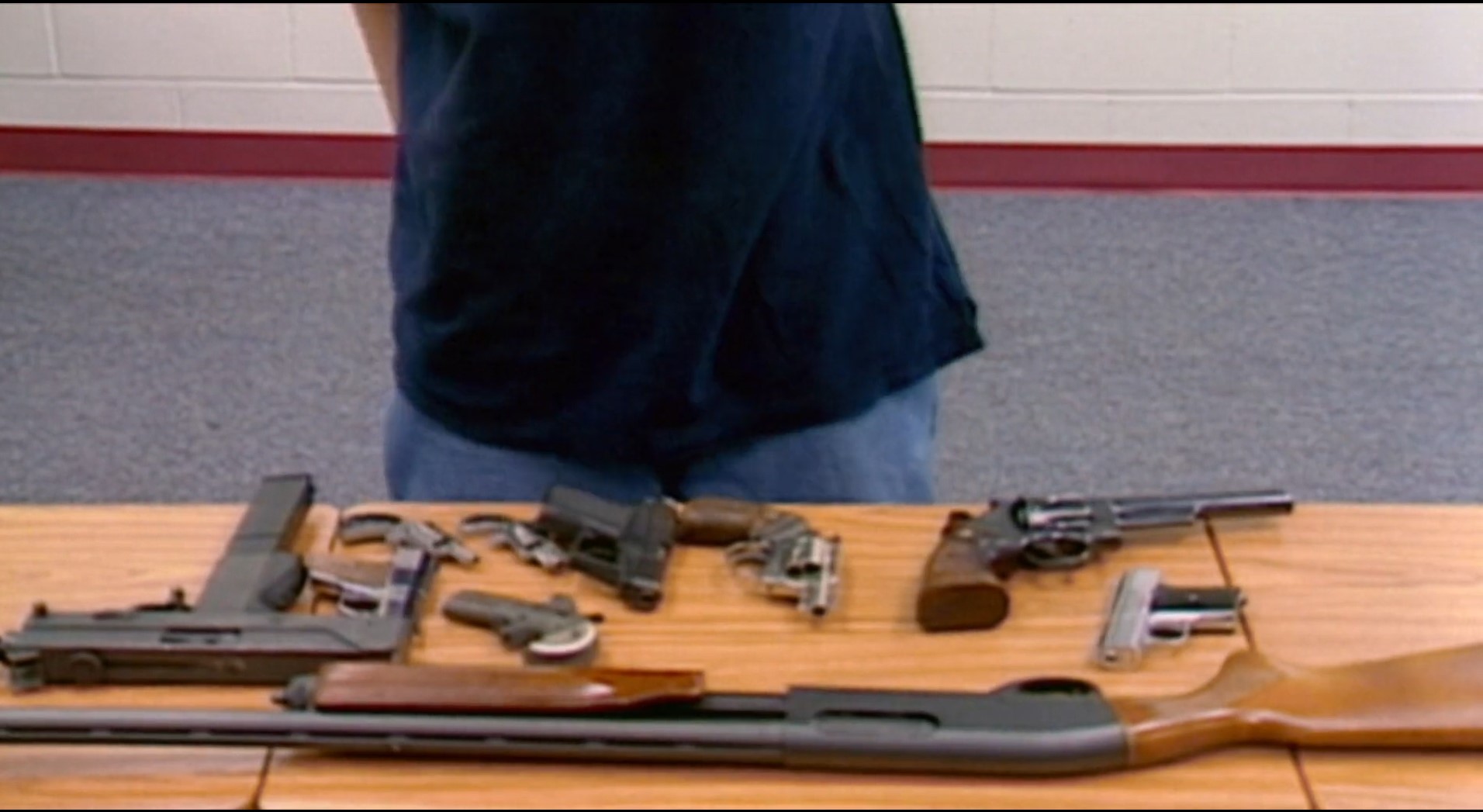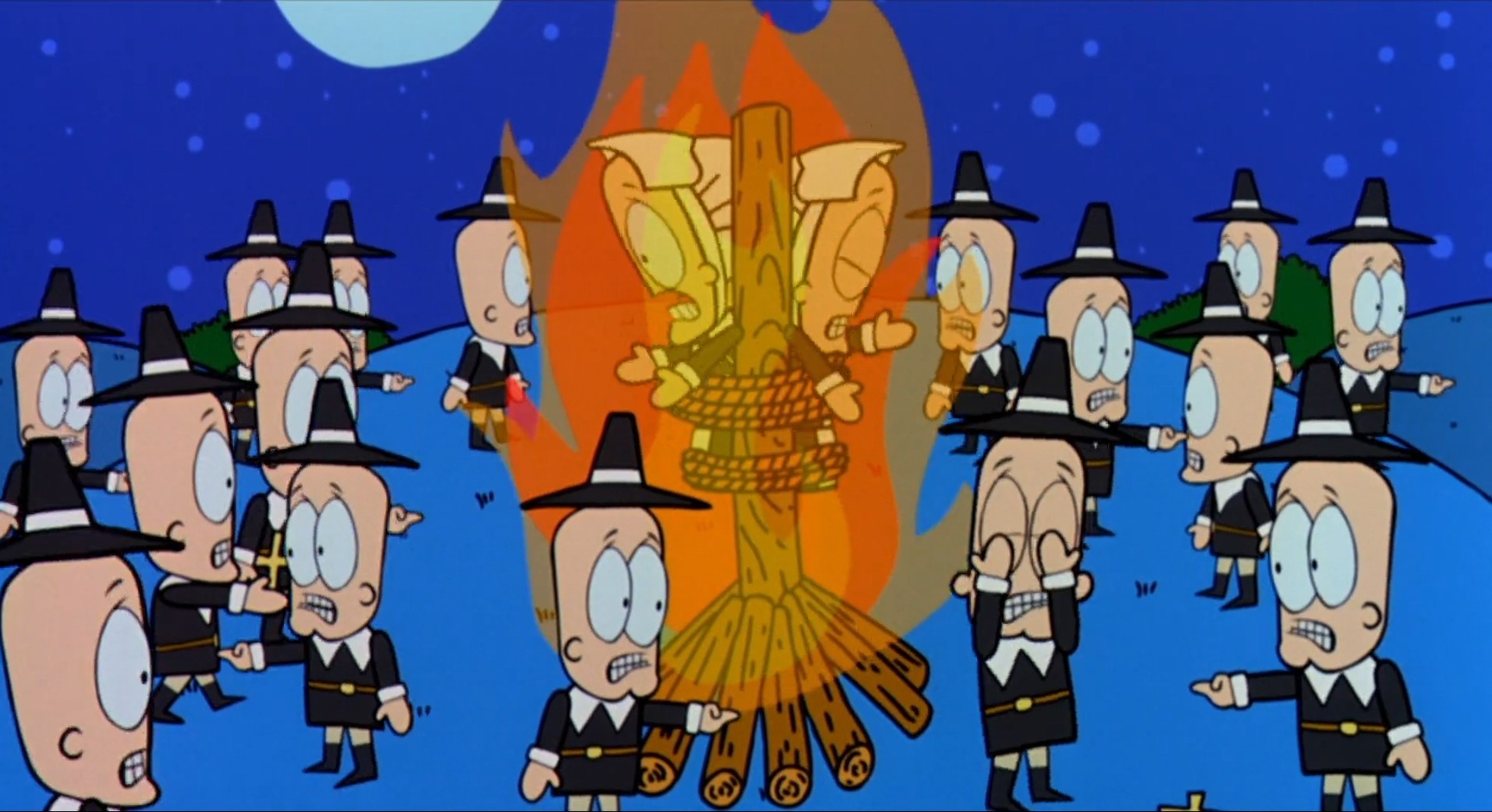Michael Moore’s Bowling for Columbine argues that America’s gun problem goes beyond mere legal regulations and reflects deeply ingrained fear and mistrust in society, and calls for greater social change.
I don’t live in the United States, and I don’t plan to. But sometimes I imagine myself living in the United States. The reason I stop myself from doing so is because I’m afraid of guns. I’ve never seen a gun other than a toy gun, and I’ve never been in a shooting. But when I think about living in the United States, guns scare me and bother me.
The United States is one of the most developed countries in the world, but it has a dark shadow of gun problems. Whenever I imagine living there, it’s the gun problem that makes me hesitate the most. While many people admire the freedom and opportunities in America, for me, owning a gun is too intimidating. For this reason, I was naturally interested in a piece that addressed this issue.
Many countries now allow guns. However, mass shootings are a hot topic in the U.S. Why is that? Director Michael Moore searches for answers. He doesn’t just dwell on one tragic event, he gets to the root of the problem. He uses guns to show us the horrors of America. He uses interviews and cameras to make his point.
The gun problem in America is not just a matter of individual rights and safety. It is a symbol of deep-rooted fear and mistrust in American society and the social divisions that result. Director Michael Moore’s film goes beyond simply discussing the need for gun control and delves into the roots of fear in American society. I found this movie fascinating because it’s not just a documentary about guns, but a window into the psychological and social fabric of America.

Despite the subject matter, the 120-minute movie is never boring. This is because the director tells a lot of stories while focusing on the issue of guns. The interstitials in the movie are hilarious. Even if you have a good story, if you don’t have the ability to tell it, it will be boring and dull. No matter how good you are, no one will listen. Michael Moore is a great storyteller. The ending, where he sarcastically says, “It’s a good time to be an American,” as he bowls the S.O.B., is really witty. It’s nice to see that he didn’t just look at the tragic events in Columbine and Flint as one-offs, but tried to find the underlying issues, and the issues he pointed out were all valid.
What makes this movie special is its subject matter and the way it is presented. Michael Moore is not just an informer, but a storyteller with a strong message. His unique approach makes the movie more interesting and forces the audience to think deeply about the issues. Moore’s films don’t just show you the reality in front of you, but instead, they dissect the complex context that surrounds it. It’s an artistic achievement that goes beyond the framework of a simple documentary.
Through this film, the director doesn’t just look at the gun problem as an event, but also explores the social, cultural, and historical factors behind it. This makes the audience think about what it takes to solve the problem, not just raise the issue. The director’s intention is clear. He emphasizes that without understanding the nature of the problem, no solution is meaningful. In this sense, the film is more than just a documentary, but a strong attempt to bring about social change.

Michael Moore also appeals to the audience’s emotions through humor and satire in his films. This is not just to make the audience laugh, but as a tool to highlight the ironies and contradictions of reality. His sharp criticisms are often hidden in laughter, but when the laughter wears off, it’s the uncomfortable truths that remain. This way of directing keeps the audience on edge throughout the movie and keeps them focused on the message of the movie until the end.
Finally, this movie reminded me of the complexity and fragility of the society we live in. The gun problem is not just an American problem. It’s just one of many issues facing modern society, but it allows us to see the bigger picture. It’s the structural problems of human society and the conflicts that arise from them. While this movie simply addresses the problems of American society, its message is universal and resonates around the world.
As I watched the movie, I realized that the gun problem is emblematic of many of the social issues we face. In order to solve these problems, we need to go beyond changing laws and institutions, and bring about changes in society as a whole. Michael Moore wants us to take the first step toward that change with this movie. His message is clear. It’s time to stop turning a blind eye to this problem.